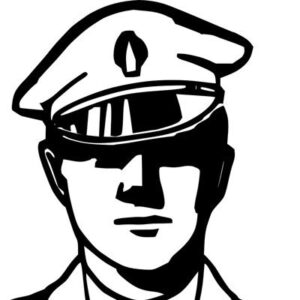“If I really want to improve my situation, I can work on the one thing over which I have control–myself.” –Stephen R. Covey
I, you, we, all need to be improving all the time. If we are not changing or growing we are simply fixed and stuck in a rut. Our future and perspective will not change unless we choose to change ourselves. It is extremely rewarding to grow because when we grow we unleash our mind to do things that we never imagined were possible. I love to read, to learn, and believe it or not, I used to despise reading. In junior high, high school, and even college classes, I never read a book from cover to cover. I would skim a book or use Cliff Notes if available to find the information I needed to learn so that I could pass a quiz or test.
When I married my wife she would read a lot. She would read books for educational purposes and books for pleasure. One day my in-laws gave me a James Patterson book, and I took it on vacation. I read the whole book through and started buying more crime novels to read.
A few years ago, I started to not only read on vacation, but also before I would go to sleep at night. I’d lay in bed, put my headlamp on my head, turn on the red light, so as not to disturb my night vision, and start to read. Now, depending on how tired I was I might only read for five to ten minutes a night. Soon, I started to read every single time before I went to bed. My wife would joke with me about how long it would take me to finish one book because I was only reading for a few minutes per night. But I read on, continuing and continuing to read books. I continued to complete book after book. Reading soon became part of my daily routine–a habit! If we went on date and stayed out late that night, I would still read. If I had to stay late at work or work an 18 hour shift and was completely exhausted. I would still read. It became just something I do.
That is how we can change our minds about money.
We have to make it part of our habits or routine.
Reading led me to start wanting to know more, and wanting to grow as a person. I started to read books about success and finances. And then I started listening to podcasts about success and finances. I had a thirst for more knowledge.
So how does an idea turn to habit? This is best explained by Stephen Covey in his book 7 Habits of Highly Effective People. I highly suggest this book. It’s a great read or listen if you prefer an audiobook.
Habit #1-Be Proactive.
Say that a few times. Be proactive. Be proactive. Let it kind of resonate. As public safety we want to be proactive. We would love to stop the criminal before they commit the crime or educate the public about fire safety before an accident happens. It is in our nature to want to help others. Many writers have said this before me, but I’m going to say it anyway. We are not going to change others, but we can change ourselves. We can own our mistakes and learn from them. Financially, we have all made mistakes, including me. I wish I didn’t take out a loan to go to college then not finish and go into the military. I see now I should have planned that better or just had a plan. First, I will go into the military, and then I will get my degree using my Post-911 GI Bill to pay for college. To change our financial selves we have to choose how we will respond when having to make financial decisions.
Habit#2-Begin with the End in Mind.
This is so true and how many of us just go through life wondering from one thing to another. We have to hone in our focus. When first started the police or fire academy, or bootcamp you clearly knew what you wanted to do. You wanted to serve as a police officer, firefighter, Marine, Seaman, Soldier, Airman, or Coastie! You started your career with the end in mind. Would you start driving to radio call location without knowing how to get there, no way! You would look at a map or use GPS and you would decide on the quickest route and best location to park. So why do we start our financial lives without having a plan? I could go on and on about excuses why we don’t know enough about finances, but I’ll save that for another day. A very simple end in mind plan could be the following: I want to retire at 50 years old with my pension and $500,000 in my deferred compensation account. Now that I say that, I know what I have to do to get there. I have set my mind on a financial path.
Habit #3-Put First Things First.
When working patrol as a police officer, we are sent to call based upon their priority level.
Is it an emergency?
Is it a priority?
Is it non-urgent?
Is it routine and can pend?
When prioritizing finances we need to put the emergencies first, like paying off all credit card debt and starting to track spending. Then we can move onto the priority level items which might be paying into an employer match 401K or 457B plan, starting an emergency fund and budgeting. As we can see these tasks will be come easier and easier and eventually managing our finances will become routine.
Habit #4-Think Win-Win.
Win-win always makes me think of my children. If I yell at them to clean up their room often, I will get the same reaction back which is them yelling. Now, on the other hand, if I speak firm but calm tone and say, “Wow! It looks like you had a lot of fun, but now it’s time to please clean up…” I usually get a better response from them. Our words are very powerful. As a public servant we must always remember that we have to be cool, calm, collected, empathetic, and confident 100% of the time. So how does win-win relate to money? Why thank you for asking. As you start to pay down debt and eventually become debt free, you will start to feel less and less stress. You pay off debt. You are calm. Win-Win. The more and more you become aware of your finances, the more and more you will start to change your circumstances.
Habit #5-Seek First to Understand, Then to Be Understood.
We have all been guilty of this before, especially me. I just want to respond and solve the problem, but I often try to resort back to the old adage that we have two ears and one mouth for a reason–to listen more than we talk. Most of the time that is what other people want– to be heard. As a cop, we sometimes go to a radio call to investigate a burglary and the victim won’t even want a report. But they will want to tell you about what happened, where they were, who they think might of done it and a whole lot of other things. Listen to them and give them the best service you can. You never know when you may need to call upon them for their support. So seek to understand your financial picture first, learn about money and debt and why you are where you are.
Habit #6-Synergize.
This makes me think about a patrol team or squad that has worked together for a few years. They know what each other is going to do, who likes to investigate accidents, who likes to try to recover stolen vehicles. You as a squad become so close, you are willing to listen to each other about how to handle a call and you are willing to ask for help when necessary. The same thing goes for finances the more you start to look at your finances, study your budget, and give them time and attention, then you will become more in sync with your financial needs.
Habit #7-Sharpen the Saw.
Sharpen the Saw–is by far my favorite! We need and want to be growing ourselves, mentally, physically, financially, and spiritually. We are at our best when faced with a challenge, because that is what we train for. When you receive that person with a gun call, what is most of the public doing–running away. Yet what is law enforcement doing–heading to the call to control the situation. We have mandated annual officer training classes, and required firearms and Arrest & Control classes, but what are you doing to self-sharpen the saw.
Do you exercise? Do you read? Do you have a saving, sharing, and spending plan? And where does your faith come from? We need the public and the public needs us. We chose this honorable profession, so let’s take control of what we can…us. Become a person that thrives on challenges and strives for growth! As I finish this post on Father’s Day, I reflect on how much I want to be a better father, better husband, better son, better brother, better cop and just a better person.
We all know at one point we will die, but what we don’t know is what those who matter to you most will remember you for. I end with one of my favorite quotes from Mr. Covey’s book:
“Sow a thought, reap an action; sow an action, reap a habit; sow a habit, reap a character; sow a character, reap a destiny.”
Your Assignment.
Not in a relationship— And don’t have any children, then write down one financial habit you want to change and one financial goal you have.
In a relationship—And married with children or in a significant relationship, then together write down one financial habit you want to change and one financial goal you have.

